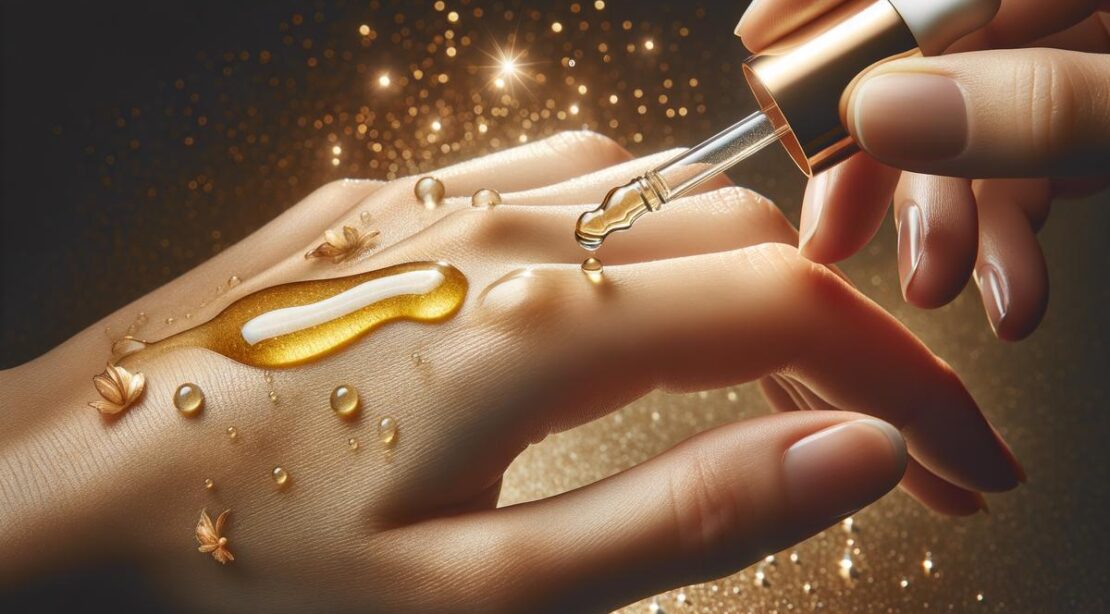Vitamin C serum is a powerful addition to any skincare routine, offering numerous benefits that can transform your complexion. From boosting collagen production to brightening your skin and reducing inflammation, this potent ingredient works to enhance your skin's health and appearance. By understanding the various advantages of Vitamin C serum, you can make informed decisions about incorporating it into your daily regimen for optimal results.
1. Boosts Collagen Production
Vitamin C is crucial for collagen production in your skin. Collagen, the protein responsible for skin's firmness and elasticity, naturally decreases with age. Applying Vitamin C serum can help counteract this process by stimulating collagen synthesis, giving your skin a plumper and tighter appearance.
Benefits of increased collagen production:
- Fewer fine lines and wrinkles over time
- Improved skin regeneration
- Maintained youthful look
By incorporating Vitamin C serum into your daily routine, you're supporting your skin's ability to regenerate and maintain its youthful look. This step is especially vital if you want to keep your skin looking firm and vibrant for longer.
2. Brightens Your Complexion
Regular use of Vitamin C can work wonders for brightening your skin. One of its key functions is inhibiting melanin production, which can lead to dark spots and uneven skin tone. By slowing down the melanin manufacturing process, Vitamin C lightens hyperpigmentation, giving you a more even and radiant complexion.
Additional benefits of Vitamin C serum:
- Shields skin from harmful UV rays
- Reduces inflammation and redness
- Speeds up healing of marks and scars
- Provides mild exfoliation
- Enhances skin's moisture retention
- Protects against environmental aggressors
- Offers lightweight hydration
- Enhances effectiveness of other skincare products
- Tackles under-eye circles
This ingredient stands out for achieving that desirable luminosity, making your everyday skincare feel like a rejuvenating treat. With consistent use, you'll likely start noticing a brighter, more consistent skin tone.
3. Protects Against Sun Damage
Vitamin C serum plays a vital role in protecting against sun damage, though it's not a substitute for sunscreen. This powerful antioxidant neutralizes free radicals generated by UV exposure, pollution, and other environmental aggressors. By reducing oxidative stress, Vitamin C works to prevent cellular damage and aging.
"Think of Vitamin C as your skin's all-weather friend—supporting, protecting, and rejuvenating even when the sun is at its peak."
When you apply Vitamin C serum, you're fortifying your skin's natural protection barrier. It helps mitigate damage caused by external factors, preserving your skin's youthful appearance. Combining Vitamin C serum with your daily sunscreen creates a comprehensive protection system, keeping your skin radiant and healthy even in harsh environmental conditions.
4. Reduces Acne and Acne Scars
Vitamin C serum can be effective in managing acne and its aftermath. Its anti-inflammatory properties help calm acne-prone skin, reducing redness and swelling associated with breakouts. This can make blemishes appear less prominent and help your skin look more even.
The collagen-boosting capabilities of Vitamin C also play a vital role in skin repair. It encourages skin cell turnover, which accelerates the healing process and gradually diminishes scar visibility. By promoting new tissue formation, Vitamin C helps transform your complexion, giving it a smoother and more uniform texture.
For those struggling with acne scars, incorporating Vitamin C serum into both morning and nighttime routines can be beneficial. With consistent use, you might notice:
- Fewer breakouts
- Significant reduction in lingering scars
- A clearer, more even complexion over time
5. Enhances Skin Barrier
Vitamin C serum plays a crucial role in enhancing the skin barrier. It fortifies the cells and structures that make up this crucial layer, which helps lock in moisture and ensures your skin remains hydrated and plump. This process minimizes water loss and prevents dry patches, flakiness, and dullness.
A strong skin barrier also acts as a defense against irritants, pollutants, and other external stressors. By keeping these out, Vitamin C helps reduce the likelihood of irritation, redness, and inflammation. This is particularly beneficial for those with sensitive skin or conditions like eczema and rosacea, as a fortified barrier can significantly lessen flare-ups and discomfort.
By incorporating Vitamin C serum into your skincare routine, you're helping to:
- Defend your skin against daily environmental aggressors
- Keep your skin hydrated and healthy
- Reduce sensitivity and inflammation
- Maintain a youthful, radiant complexion
6. Consistency and Concentration Matter
For your Vitamin C serum to deliver its full benefits, consistency and concentration are key. The ideal range for maximum effectiveness is a serum containing 10-20% concentration of L-ascorbic acid. This range is potent enough to show significant results, like boosting collagen production and brightening your skin, without causing irritation.
Higher concentrations might sound appealing, but going above 20% doesn't necessarily mean you'll get better results. It can lead to irritation, redness, and dryness, which is not the smooth, radiant skin you're aiming for. So, stick to that golden range to reap the benefits without the drawbacks.
Consistency in usage is equally crucial. Applying your Vitamin C serum daily, ideally both morning and night, can make a notable difference. Remember, skincare is like working out—you won't see the benefits from a single session. Regular, consistent use brings about that coveted glow and youthful appearance.
Pro tip: Don't forget to patch test a new serum before going all in, especially if it has higher L-ascorbic acid concentrations. This way, you can ensure your skin tolerates it well.
7. Check for Complementary Ingredients
When selecting a Vitamin C serum, paying attention to its complementary ingredients can maximize its effectiveness. Look for formulations that include vitamin E and ferulic acid. These two ingredients work synergistically with vitamin C to stabilize it and enhance its overall efficacy, providing your skin with stronger defense against environmental damage.
- Vitamin E: Another potent antioxidant that helps neutralize free radicals. When combined with vitamin C, it amplifies the photoprotective benefits.
- Ferulic Acid: Stabilizes vitamin C and E, preventing them from degrading too quickly, and enhances the photoprotective properties of the serum.
Incorporating these complementary ingredients can make a noticeable difference in the performance of your Vitamin C serum. Your skin receives comprehensive protection and a boost in its resilience and vibrancy.
8. Storage Is Key
Proper storage of your Vitamin C serum is crucial to maintaining its shelf life and potency. This antioxidant is sensitive to light, air, and heat, which can degrade its effectiveness over time. Look for serums that come in dark glass bottles to shield the product from light exposure.
To further protect it, consider storing it in the refrigerator. The cool, dark environment helps slow down oxidation, extending the product's lifespan. Refrigeration can also add a refreshing boost to your skincare routine, as applying a chilled serum can reduce puffiness and provide a soothing sensation.
Always make sure to tightly seal the bottle after each use. Exposure to air can speed up oxidation, diminishing the serum's efficacy.
A dark, tight-sealed bottle stored in the fridge helps maintain a potent product ready to deliver all those fantastic Vitamin C benefits to your skin.
9. Watch for Expiration
Keeping an eye on your Vitamin C serum's freshness is crucial for ensuring its effectiveness. Over time and with exposure to light and air, this ingredient is prone to oxidation. You wouldn't want to apply an oxidized serum, as it loses its effectiveness and may cause irritation.
Monitor the color of your vitamin C serum. When it's fresh, it typically starts out either clear or with a light yellow tinge. As it oxidizes, the color can shift to a darker yellow, orange, or brown. A sudden change to these hues is a sign that the serum has degraded and it's time to replace it.
Before each use, take a moment to inspect the serum. If it's still that light, promising shade, proceed with confidence. If not, it's best to discard and replace it. This might seem like an extra step, but it ensures you're treating your skin with top-quality products every time.
With proper storage, as mentioned earlier, you can extend the serum's life. Some brands even include expiration dates or "best before" labels. Make use of these cues to ensure you're always applying a fresh, potent product.
10. Application Tips for Maximum Effect
Mastering the application technique for your Vitamin C serum can make a world of difference in achieving its full potential. Here's how to get the most out of your skincare:
- Cleanse and tone your skin before applying Vitamin C serum.
- After toning, pat your skin dry and apply a few drops of Vitamin C serum to your face, neck, and chest. Apply it before your moisturizer to ensure deep absorption.
- For optimal results, use your Vitamin C serum both in the morning and at night.
- When using Vitamin C serum in the morning, pair it with sunscreen for enhanced protection.
- Use gentle, upward motions when applying your serum to help with absorption and promote circulation.
- Incorporate Vitamin C serum into your regular skincare routine consistently for the best results.
- If you're new to Vitamin C serums, introduce it gradually. Start with a few applications per week and build up to daily use.
- Avoid mixing Vitamin C with certain active ingredients like retinol and some acids in the same routine to prevent potential reactions.
- Consider sealing in the benefits by layering a facial oil on top of your moisturizer, if your skin type allows.
By following these application tips, you're setting the stage for your Vitamin C serum to perform at its best, helping you achieve that healthy, radiant complexion.
11. Consider Your Skin Type
Your skin type plays a pivotal role in determining the right Vitamin C serum for you. If you have sensitive or dry skin, opt for serums with lower concentrations of Vitamin C, ideally around 10%. This will still give you the benefits without the risk of irritation or dryness.
For those whose skin can handle more potent treatment and are looking to target stubborn issues like deep-set acne scars or pronounced hyperpigmentation, consider a serum with a concentration closer to 20%. Remember, you can always mix the serum with your moisturizer to help your skin gradually acclimate to the ingredient.
| Skin Type | Recommended Vitamin C Concentration |
|---|---|
| Sensitive/Dry | 10% |
| Normal/Combination | 15% |
| Oily/Resilient | 20% |
If you're dealing with specific skin concerns like rosacea or eczema, consulting with a dermatologist before incorporating a Vitamin C serum can be helpful. They can recommend the best formulation and concentration based on your unique skin needs.
By tailoring your Vitamin C serum selection to your specific skin type, you'll set yourself up for skincare success. It's all about finding that perfect balance, so your skin looks vibrant, healthy, and radiant.
Incorporating Vitamin C serum into your skincare routine can significantly improve your complexion. By focusing on its consistent use, proper storage, and selecting the right concentration for your skin type, you set yourself up for success. Remember, it's all about giving your skin the care it deserves so you can enjoy glowing results every day.
Recent studies have shown that topical application of Vitamin C can increase collagen production by up to 40% in some individuals1. This boost in collagen can lead to firmer, more youthful-looking skin over time. Additionally, Vitamin C has been found to reduce hyperpigmentation by inhibiting tyrosinase, the enzyme responsible for melanin production2.



